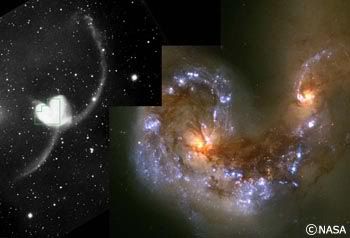

I see atheists making this mistake all the time.
(1) If God is the origin of the universe and if the universe is complex than God must be more complex than the universe.
(2) for some stupid reason they can't say they seem to think origins can't be complex. so God can't be complex so there can't be a God.
(sometimes they play this off of a design argument that uses complexity as a sign of design).
(3) maybe they also think being complex means God is not the elegant solution and belief is unparsimonious (because they mistakenly think parsimony means "take the simplest solution."
My answers:
(this was an exchange on CARM)
Originally Posted by LACanuck View Post
I've been reading Metacrock's (mostly) posts regarding God being the 'ground of being' or 'necessry being'. A little digging on my part came up with this quote from Andrew Cohen
This brought to mind the question posed in the title. If there is a ground of being, why do we endow that concept with personality? Why do we give it creative powers as if the concept is deciding what happens? Why do we anthropomorphize the concept?
If the ground of being is spaceless, timeless, thoughtless, etc. how can it dictate/inspire the bible? Or have a son. Or a holy spirit?
there are different notions of the ground of being. John MacQurrie (a major theologian) explains the Trinity by saying the ground of being would be indistinguishable from nothing if not for its own self reflexive nature, which is echoed in the Trinity.
As for the aspect of consciousness. Charmlers argues that consciousness is a basic property of nature. Hawking says that the Gut theory needs a central organizing principle which he calls "God" so I assume both of these ideas indicate that consciousness is not just produced by individual brains but is endemic to reality. it's a basic properly, it's part of the unified field and basic to all reality.
It's part of the self reflexive nature of ground of being. It's not like our consciousness. We can't expect God to actually think or use ratiocinate.
If the phenomena is complex must it's origin be more complex?
No that's a fallacy. After all evolution says that we go from simple to complex, life begins with single cell, the universe begins with mere subatomic structure and well it all comes out of a single point. The universe is not like a plant, waiting around in the singularity seed for all eternity before it can germinate. That is not what science says, even though it is a "cool" image.
"complexity" is a matter of biology and physics. God is not biological nor is God subject to physics. The laws of physics are merely ideas in the mind of God. They are nothing to God. God is no more subject to physics than you are to a stray thought. Biological complexity is a function of evolution. God does not evolve, except in process theology his concrete pole changes with the universe, but that doesn't mean he grows in complexity.
Origins can't be complex.
There is nothing about complex that means an origin couldn't be complex.The Platonic forms, just to use an analogy, would be very complex, in fact there would have to be a form for complexity itself.But no one ever said the Platonic forms had to be designed. Although Augustine did say they had to be the product of mind, God's mind.
some play this point off of the design argument itself. But the conventional design argument is fallacious. I don't use it and I think much of most Christians attempts to use it. The only except is the fine tuning argument because the target levels give us something to compare.
while we might assume complexity is a sign of design it does not follow that complexity in and of itself equals design.
Complexity is not parsimonious.
This is just a mistake in the meaning of the term. First, there's more to Parsimony than just saying 'take the simple solution." Secondly, the simple solution refers to the simplicity in assigning odds or probability not simple in terms f the prosperities of the phenomenon proposed.
human sexuality is more complex in terms of the process and function than is the explication that that starks bring babies, but it is also more correct.
__________________
quote:
Originally Posted by rounin
I see Christians making thw same mistake: "If the universe is such and such, its origins must be a sentient being."
At any rate, one would have to agree that it's a mistake.
why is that a mistake? That's the way science does it. you don't find scientists saying "So what if there's background radiation and the red shift shows us the galaxy i expanding, that doesn't mean anything about the origin."
The Big Bang is inferred directly from the nature of the universe as we find it.
although I agree we can't reason from the nature of the universe to its origin in terms of design. But if you stick to that you lose the theodicy argument too.
Now you may ask how it is that we can reason form the nature of the world to the big bang but not form nature of the world to God? Because with the big bang we have a comparison. We do not have another universe that we know was made by God (0r not) to compare with this one to see what a God made universe (or a totally random chance) universe looks like. But we do have a comparison with Doppler's shift. WE can tell which way the stars are going.
By the same token, however, we can make a God argument out of it. Andre Linde talks about the stars all moving in equal directions in a flat universe that is indicative of design because we can compare it with an idea of random expansion we know that it is indicative of some force.
On CARM
HRG;1804468]Sorry, the argument is faulty.
The complexity claim by itself has nothing to do with biology or physics; it is a statement of information theory. Unlike biological or physical processes, the creation of the universe by God is supposed to be a fully [B]planned [/B]process. Such processes are bound by Kolmogorov-Chaitin: the result cannot be more complex than the generating program or entity.
In addition, God's omniscience means that a full and exact model of the universe must be present inside God's mind. Again, his mind must be more complex than the universe.
How foolish to pin god down to human standards. you want to put god under the same strictures as all biological life. God is just a big man in the sky and he's just like any biology. No, sorry wont wash.
God is not biological. he's not bound by physics. we don't understand Go, nothing you can say sums him up. you cannot understand what he's made of or why he exists and we can't even call him "him" he's not a him or he. We can't say "it" we can't even use a personal pronoun.
let's say it again [B][I][SIZE="3"]god is beyond our understanding.[/SIZE][/I][/B]
Kolmogorov-Chaitin: will one day bow before the great white throne on their knees and be judged like little persons and God will not be impressed with what mathematician they were. HE wont say "O you are so brilliant, you impress me so, thank you for being my creature, will you please come teach me mathematics?" sorry, he will not care about any big words you use he wont care about anything you learned in school. But he will love you for the little baby Hansel that you once were.
If God's complexity cannot have grown, it must be there right from the start, and the theist is left with the burden of explaining the existence of a highly complex and thus highly improbable entity.
because that's what it means to be. That's what reality is. reality a product of whatever eternal state is indicative of God's mind.
but God is very simple because he's nothing more than the most basic act that could ever be that of pure being itself.
the whole assumption you make here is based entirely upon the physical universe, and upon phenomena which are subject o natural law. you have no concept that would allow you even being to contemplate a thing that is not subject to but actually creates that natural law.
You have no basis to even begin to think about it. and you have no big fancy math word what would rule out the idea of eternal mind.
Mind is very simple idea but it can be complex in its make up. you are just trying to subject reality to the tiny little sliver of it that man thinks he has pinned down.
P.S. An omniscient being would have to know the properties of[B] every subset [/B]of the natural numbers, and thus must be [B]uncountably [/B]infinitely complex (Set Theory 101).
where does the Bible say God is omniscient? If the eternal mind is infinite why can't it do that?
when you say "complex" you mean because biological organisms have lots of prts how do you count complexity for something that has no parts at all?

No comments:
Post a Comment